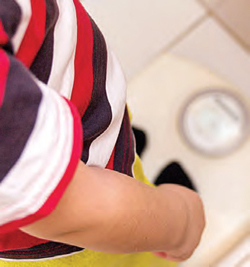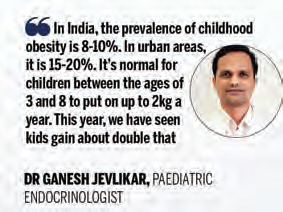
CORPORATE CITIZEN CLAPS FOR YOUNG FARMER RANJAN KUMAR MAHTO OF JHARKHAND’S BOKARO DISTRICT AND THE SOLDIERS OF THE SIKH REGIMENTAL CENTRE (SRC) WHO RECIPROCATED MAHTO’S GENEROUS GIFT OF WATERMELONS INTO A UNIQUE TWO-WAY SAMARITAN ACT FOR BOTH
 Farmer gifts produce to the soldiers of the Sikh Regimental Centre who
Farmer gifts produce to the soldiers of the Sikh Regimental Centre whopurchased the produce at the market price
Unable to sell his produce due to the ensuing lockdown, the 25-year-old Jharkhand farmer decided to gift the fruits of his labour-an entire five tonnes of watermelons to the Indian Army soldiers of the SRC at Ramgarh. But, instead of accepting the donation, the SRC officers decided to aid Mahto by buying his entire produce at market price. Mahto’s condition was such that no one in the village were ready to buy his produce even at the discounted price of Rs.2 per kg. He then approached the SRC cantonment and offered the produce to the brave soldiers for free. However, commandant Brigadier M Sri Kumar and soldiers visited Mahto’s farm adjoining Bokaro district’s Kander Village and bought off the entire produce. They transported the crop in their own vehicles to the SRC post, located some 15 km away. The officers also offered groceries, gifts and food packets to labourers on Mahto’s farm. The entrepreneurial Ranchi University graduate had started farming after failing to secure a regular job, and has been cultivating vegetables including, capsicum, brinjal and watermelons on a leased 25-acre land. He had launched his venture two years ago but suffered heavy losses due to the Covid-19 pandemic and Cyclone Yaas. Brigadier M Sri Kumar said, “It was heartening to see drip irrigation on 25 acres of land but unfortunately, the poor farmer could not sell the produce. We saw women workers too.” Such Good Samaritan acts flag off the eternal, friend in need adage, especially, now for farmers who are not as fortunate as Mahto. Let fate not dump the likes of the capsicum growers in Punjab or the tomato growers of Karnataka for lack of appropriating a sound demand-supply trend.
CORPORATE CITIZEN SLAPS THE INCREASE IN THE RATE OF CHILDHOOD OBESITY IN INDIA AND THE PROBABILITY OF A HIGHER RISK OF CHILDREN GETTING INFECTED WITH COVID-19


A recent survey conducted by the Sportz Village Schools on children residing in Delhi reveals that over 51% of the children have an unhealthy BMI (Body Mass Index). The data translates to every one in two children suffering from poor lifestyle habits and that they may be overweight. Statistics have shown that 6-8% of school-going children in India suffer from obesity and that India is home to the second largest number of obese children globally, and follows China which is ranked first. With the second wave of the pandemic targeting children below 18 years, the new report revealed that children in India also lead an unhealthy lifestyle. The report also states that obese children have a higher risk of getting infected with Covid-19. With long lockdowns and quarantine time zones, lack of available play space and out of school scenarios, the Covid-19 pandemic has further disrupted healthy childhood lifestyles. While prevailing factors such as heredity, diet, poor nutrition, socio-economic status and prescription drugs remain as underlying factors, the pandemic has pushed most children to a lack of exercise zone and overeating at home-leading to an almost permanent ‘obese’ state. With the third pandemic wave anticipated, it is high time that parents and children work towards programming some sort of a healthy lifestyle by advocating sleep hygiene, a healthy diet and an electronic detox programme as the after-effects could leave a more irreversible impact on future developmental growth and lifestyle management skills. It is known that obese children are at a higher risk of hypertension, high cholesterol, type-2 diabetes, stroke, sleep apnoea, and joint pain but the current lack of physical activity and over-dependence on digital screens has also raised the probability of children being susceptible to cancer-causing agents. Undoubtedly, prevention is better than cure, but parents have to monitor their overall lifestyles for children to follow. Most importantly, experts warn that reward children but not with food.